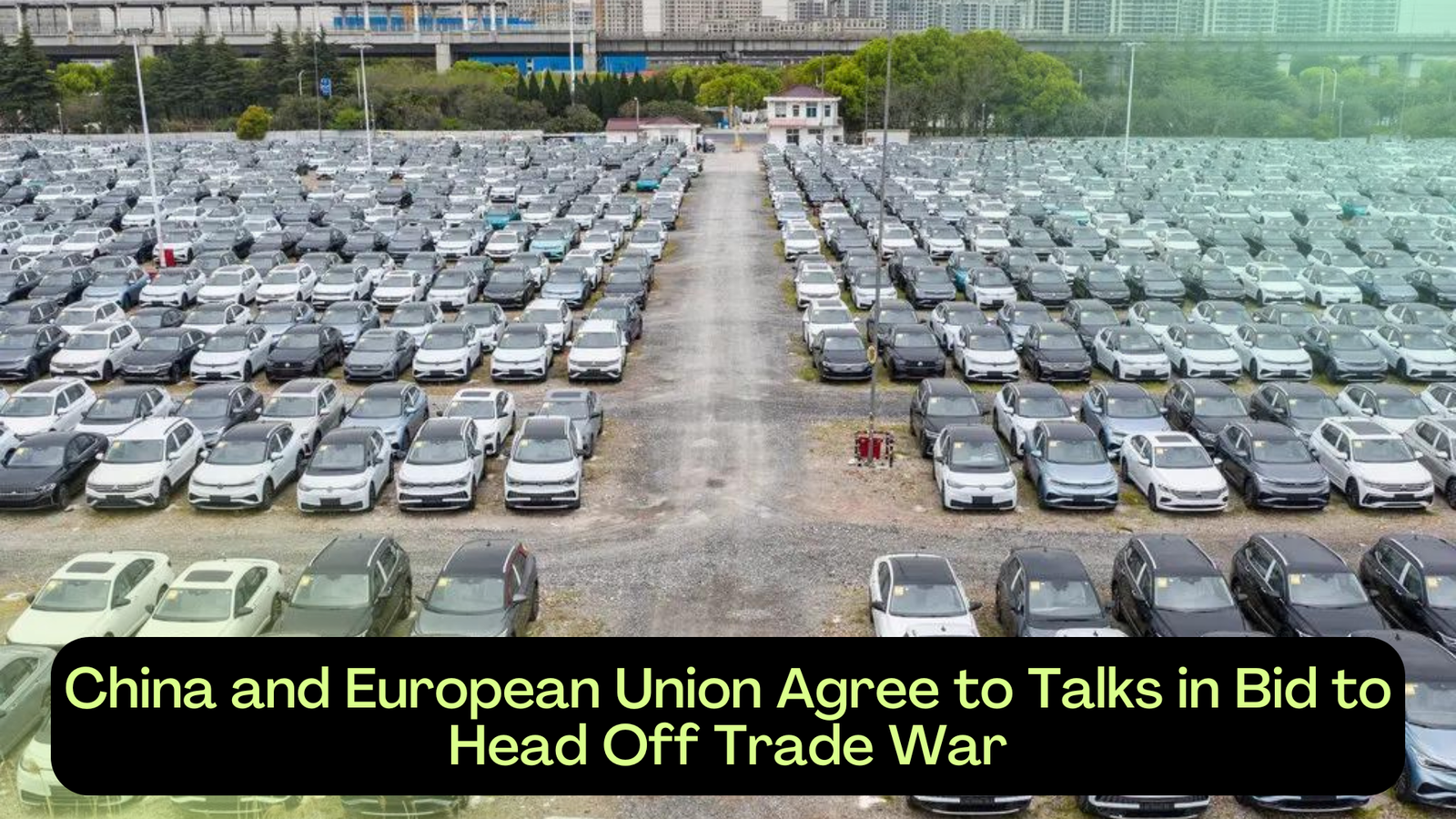China and European Union Agree to Talks in Bid to Head Off Trade War

The economic landscape is bracing for significant turbulence as China and the European Union (EU) have decided to engage in high-stakes negotiations to address the escalating trade dispute over tariffs on electric vehicles (EVs). This development comes at a critical juncture with billions of dollars in trade hanging in the balance.
Background of the Trade Dispute
In a bid to protect its automotive industry, the European Commission recently proposed imposing tariffs of up to 38% on electric vehicles imported from China, adding to an existing 10% tariff on imported cars. The Commission justified this move by highlighting that China’s electric car sector benefits significantly from government subsidies and state-controlled banking support, which allegedly give Chinese automakers an unfair competitive advantage in the European market.
Germany’s Crucial Role
Germany finds itself at the epicenter of this brewing conflict. The country’s auto industry is deeply intertwined with China, making it particularly vulnerable to retaliatory measures from Beijing. During his recent visit to China, Robert Habeck, Germany’s Vice Chancellor and Economic Minister, emphasized the EU’s willingness to engage in talks to avoid the imposition of tariffs. Habeck’s visit underscores Germany’s critical role in navigating this complex trade relationship.
The Stakes for European Automakers
European automakers, including giants like Volkswagen, are in a precarious position. These companies have significant investments in China, where they have established joint ventures and manufacturing plants. The proposed tariffs threaten to disrupt this symbiotic relationship, potentially leading to severe economic repercussions for European car manufacturers. Volkswagen, for instance, has been expanding its manufacturing and engineering operations in China, a move that could be jeopardized by the looming trade war.
China’s Perspective and Response
From China’s standpoint, the proposed EU tariffs are seen as a violation of World Trade Organization (WTO) rules. Wang Wentao, China’s Commerce Minister, has voiced strong opposition to the tariffs, arguing that they are inconsistent with international trade norms and undermine global efforts to combat climate change. The Chinese government has signaled its intent to take all necessary measures to protect the interests of its companies, including potentially imposing retaliatory tariffs on European goods.
Potential Retaliatory Measures by China
In anticipation of the EU tariffs, China has already taken preliminary steps towards imposing tariffs on imports of cognac and other wine-based spirits, primarily targeting France. Additionally, China has threatened to impose tariffs on pork imports from Europe, with a particular focus on Spain, the leading European exporter of pork to China. Furthermore, the Chinese auto industry has urged the government to consider tariffs on gasoline-powered cars imported from Europe, a move that would predominantly impact German automakers.
The Broader Implications of the Trade Dispute
The repercussions of this trade dispute extend beyond the immediate impact on the automotive sector. For Germany, the stakes are exceptionally high due to its extensive economic ties with China. German luxury car brands like Mercedes and BMW are highly coveted in China, and any disruption in trade could have a ripple effect on the broader German economy. Moreover, the dispute threatens to strain diplomatic relations between China and the EU, complicating efforts to collaborate on other global issues such as climate change and technology standards.
Strategic Negotiations and Diplomatic Maneuvering
As the talks progress, both sides are expected to engage in strategic negotiations to find a mutually acceptable solution. Executives at European automakers have suggested that Chinese manufacturers could build cars in Europe with European workers earning European wages, rather than exporting cars from China. This approach could potentially alleviate some of the concerns regarding subsidies and unfair competition.
Historical Context and Lessons Learned
This isn’t the first time China and the EU have found themselves at odds over trade issues. A similar situation arose in 2013 when Germany played a pivotal role in overturning proposed European Commission tariffs on Chinese solar panels. The rapid influx of Chinese solar panels into Europe subsequently led to the collapse of the European solar industry. Advocates for the current tariffs argue that the European car industry faces a comparable threat from Chinese electric vehicles.
Future Prospects and Possible Outcomes
The outcome of these negotiations will have significant implications for the global automotive industry. If the EU and China can reach an agreement, it could pave the way for a more balanced and competitive market. However, failure to resolve the dispute could lead to a full-blown trade war, with severe economic consequences for both sides.
In conclusion, the unfolding trade dispute between China and the European Union over electric vehicle tariffs is a complex issue with far-reaching implications. The outcome of the upcoming talks will be closely watched by stakeholders across the globe, as it will shape the future of the automotive industry and international trade relations.




